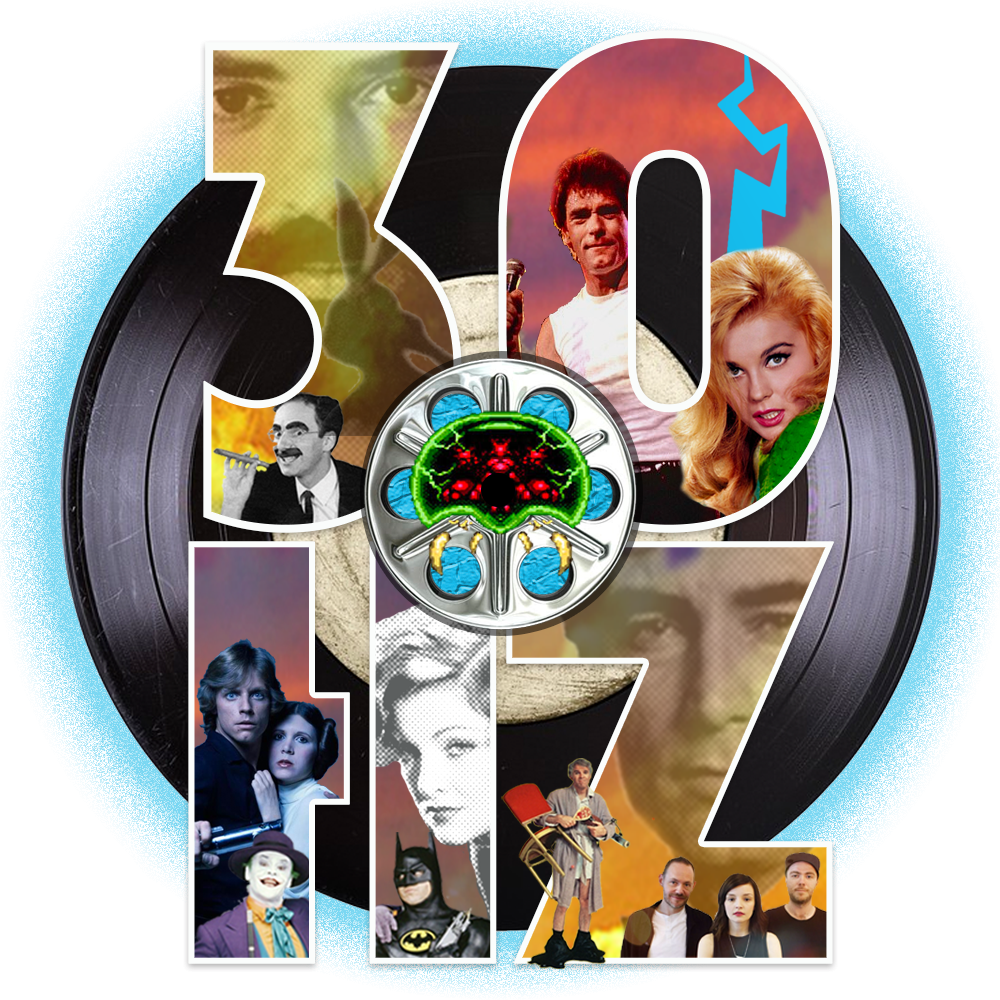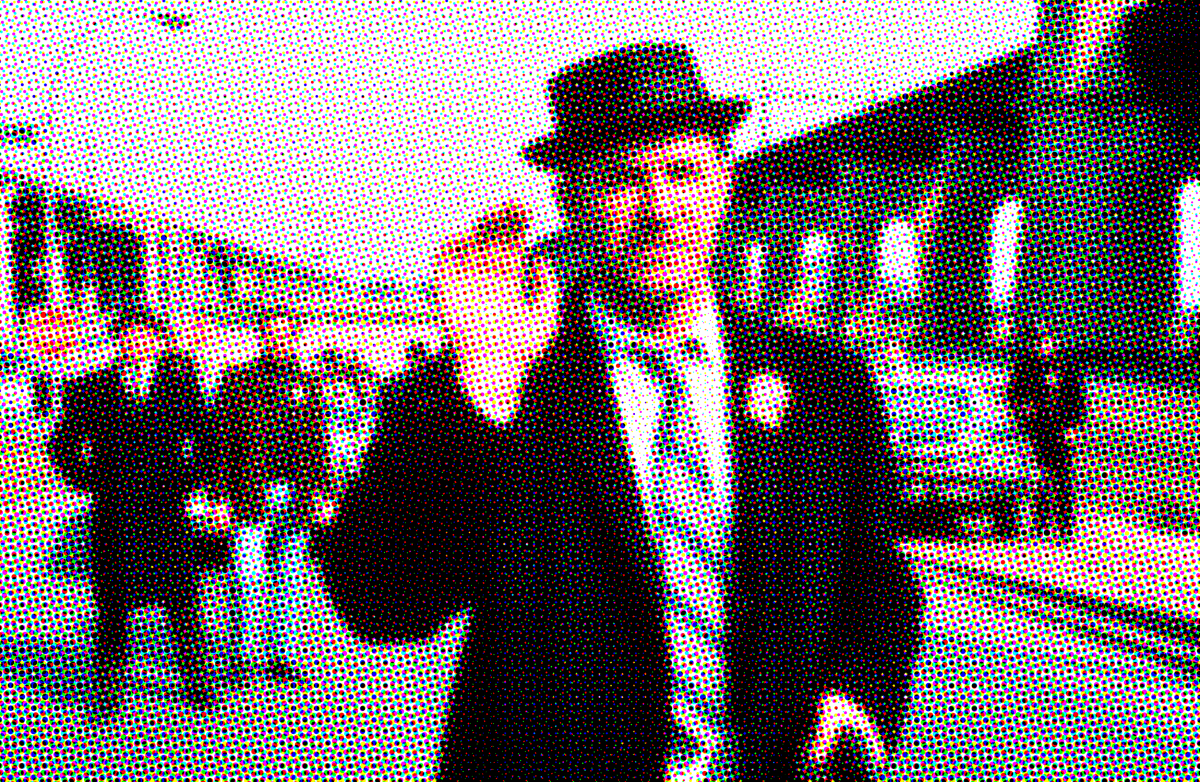(originally published on Inside the Envelope)
Only on DVD: Part 8
Continued from Part 1 / Part 2 / Part 3 / Part 4 / Part 5 / Part 6 / Part 7
In 2020, people started to take notice of the little changes made to movies before their appearance on streaming platforms. Oddly, my search into the recent news cycles suggested that larger entertainment outlets didn’t bother to cover the changes with any real zest. Instead, incensed bloggers took up the torch, bloggers like Jamie Logie on medium.com who pondered if this was merely the tip of a really big iceberg. He noted that Disney had obscured part of Daryl Hannah’s tasteful posterior in Splash (1984) – before eventually putting it back in – and that Netflix had removed the reveal of Biff’s Ooh La La magazine in Back to the Future 2 (1989). In the edit, Marty only says “Ooh la la” while an awkward cut skips over the book’s identity. We saw some more of the iceberg after Disney chopped up The French Connection.
Sidenote: Apparently, the suggestiveness of a 1950’s nudie magazine was too much for the fragile constitutions of our 21st century offspring. The button-up 1950s were a conservative reaction against the flapper 1920s, and the 1980s were a devil-may-care commentary/nostalgia-gasm about the button-up 1950s, which means that the 2020’s, via its erasure of the 1980’s playful commentary on the button-up 1950s, are now disavowing a modest transgression from the most conservative era of the 20th century. Got it.
I won’t make the claim that the 1980’s were a societal pinnacle, but we, the children thriving in the Reagan-era, were allowed to witness rampant and largely innocent sexuality in PG-rated cinema and I’m pretty sure we were better off because of it. I’ll wait for the Kinsey Institute study to prove me otherwise. Admittedly, there was the Porky’s-type lechery that seeped into the popular culture and I’m no fan of that leering brand of misogyny. But that is not this. Staring through peepholes into the girls’ locker room is a far cry from a small gag about Biff’s off-color reading material. That detail provides character definition and a clever joke about the latent impurities beneath the surface of 1950’s decorum – that the kids of the 50s and the kids of the 80s were still, ultimately, just kids.
This conversation about revisionism floated to the surface when the news broke wide that Disney had tampered with William Friedkin’s classic The French Connection (1974) and distributed this new cut into the wild. A 52-second section of that film was edited because Gene Hackman’s cop character, Popeye Doyle, utters racial slurs. Those are the facts. We’ll return to this in a moment, but first I wanted to look at Disney’s recent history of censorship as a “family-friendly” company in the 21st century.
Due to Disney’s policies regarding streaming content on its Disney+ service, content rated higher than PG-13 or TV-14 generally hasn’t been made available. Recently, parental controls have been instituted and R-rated content such as Deadpool (2016) has popped up on the app. The company’s directives have long been a source of contention among cinema purists who’ve made a study of the Mouse’s tendency to meddle in the moral quality of its artistic productions. The need to obscure and shuffle potentially offensive material under the rug has been part of the Disney brand – even if it often refuses to specifically acknowledge the ways it manipulates its own properties.
The list of movies that Disney has censored or adjusted for its streaming platform includes more than just the likes of adult content like Deadpool. A Goofy Movie, Darkwing Duck, DuckTales, The Emperor’s New Groove, Goof Troop, The Muppet Christmas Carol, and Who Framed Roger Rabbit have all been edited for streaming exhibition. The questionable content included cleavage (yes, really), cigarettes, violence, and racial insensitivity.
With regards to The French Connection edits, however, I think we can all agree that the Disney company has gone outside its jurisdiction. The edited cut aired not on its own streaming channel – but The Criterion Channel and TCM, was loaned out via DCP (aka a Digital Cinema Package, the digital-age substitution for a stack of film cans) for theatrical exhibition, and replaced the original cut for anyone that had purchased a digital copy through Vudu, Amazon, Apple, etc. It did so without notice of modification. Blurring cleavage in Wizards of Waverly Place is one thing – butchering the editing of an Oscar-winning film is another matter entirely. It should be noted, specifically, that Gerald B. Greenberg won an Academy Award for his editing of The French Connection.
I want to call out this fact one more time for anyone that thinks that buying a digital copy of a movie is the same thing as owning a copy of the disc.
Disney replaced all previously purchased digital copies of The French Connection with the version containing this edit.
To make this point very clear, these included copies of the 20th Century Fox film purchased through sites that had no affiliation with the Disney company and potentially even prior to Disney’s acquisition of the Fox library. Today, the only way to purchase the unedited The French Connection is on the old 20th Century Fox Blu-ray, which Disney has since chosen to stop distributing. It is currently and suddenly out of print. It should be noted that international Blu-ray releases are still available.
Now, let’s return to the facts. Gene Hackman’s Popeye Doyle uses a racial slur. The movie does not celebrate his usage. In fact, Ernest Tidyman’s script uses the scene to establish that our protagonist is far from an excellent human. He’s a complicated moral figure that single-mindedly attacks the streets to achieve an outcome using any method necessary. The film asks the audience to determine for themselves if the end justifies the means. Neutering a scene that uses vulgarity to color in those shades of gray muddies the filmmakers’ creative intent with arbitrary moral judgment brought down 50 years after its 1971 release.
So, what’s this all about? Why now?
Some years ago, everyone collectively stopped giving the audience the benefit of the doubt. I’d argue that the audience stopped earning it as well. The Internet culture that democratized film criticism has also given megaphones to people without the slightest interest in film education, preservation, or context. Everything, it seems, has been filed under the disposable label “content,” which celebrates banal, comfortable, safe mediocrity. This does not describe the cinematic landscape of the 1970s.
William Friedkin is trying to establish that the character of Popeye Doyle in The French Connection is a racist, belligerent cop. Gene Hackman (who also won for his performance in the film) said that he also had reservations about playing the character. Popeye’s a bad guy and that might make him a good cop… or a bad cop. The viewer gets to decide – not the media conglomerate lording over its massive empire on high or the reactionary bloggers feigning offense without caring to understand that the movie itself holds Popeye Doyle up as a racist. Friedkin never played coy with the issue. This was not a “good people on both sides” brand of hedging.
Where does this end? Does it end? The arbitrary nature of taking the knife to The French Connection suggests that no movie is safe from massacre. Am I overreacting? I don’t think so. We’re collectively not overreacting enough. We’re not teaching enough. We’re not talking enough. And most problematically, as a culture we can’t be bothered to care enough. This will happen again and again. The precedents are being set. The cleansing of our classic media means fewer irrationally angry potential customers. It’s not sanitization, reader, it’s global anesthesia by way of mass commercialism.
The French Connection doesn’t represent an anomaly. People talked liked this. Cops in cop movies talked like this. For all their artifice, movies have always presented a version of our reality – no matter what alarms sound in our 2023 brains. Don’t say that. Don’t do that. 2023 isn’t wrong, but we should maintain the ability to witness our past – our progress and our transgressions – so that we can recognize them for what they are.
The whitewashing of our media is no different than the conservative push to ban books that consider the history of race in America… or scrub clean from offense Ian Fleming’s James Bond novels or Roald Dahl’s children’s books. Bad press means people on Twitter fuming away as they click themselves into a fury, having never read or taken the time to understand the source of the intent. Corporate culture has found need to adulterate our celebrated art in the name of sensitivity, but we all recognize the motivation.
Money.
And that two-faced turn makes the significance of this midnight theft stink even more.

